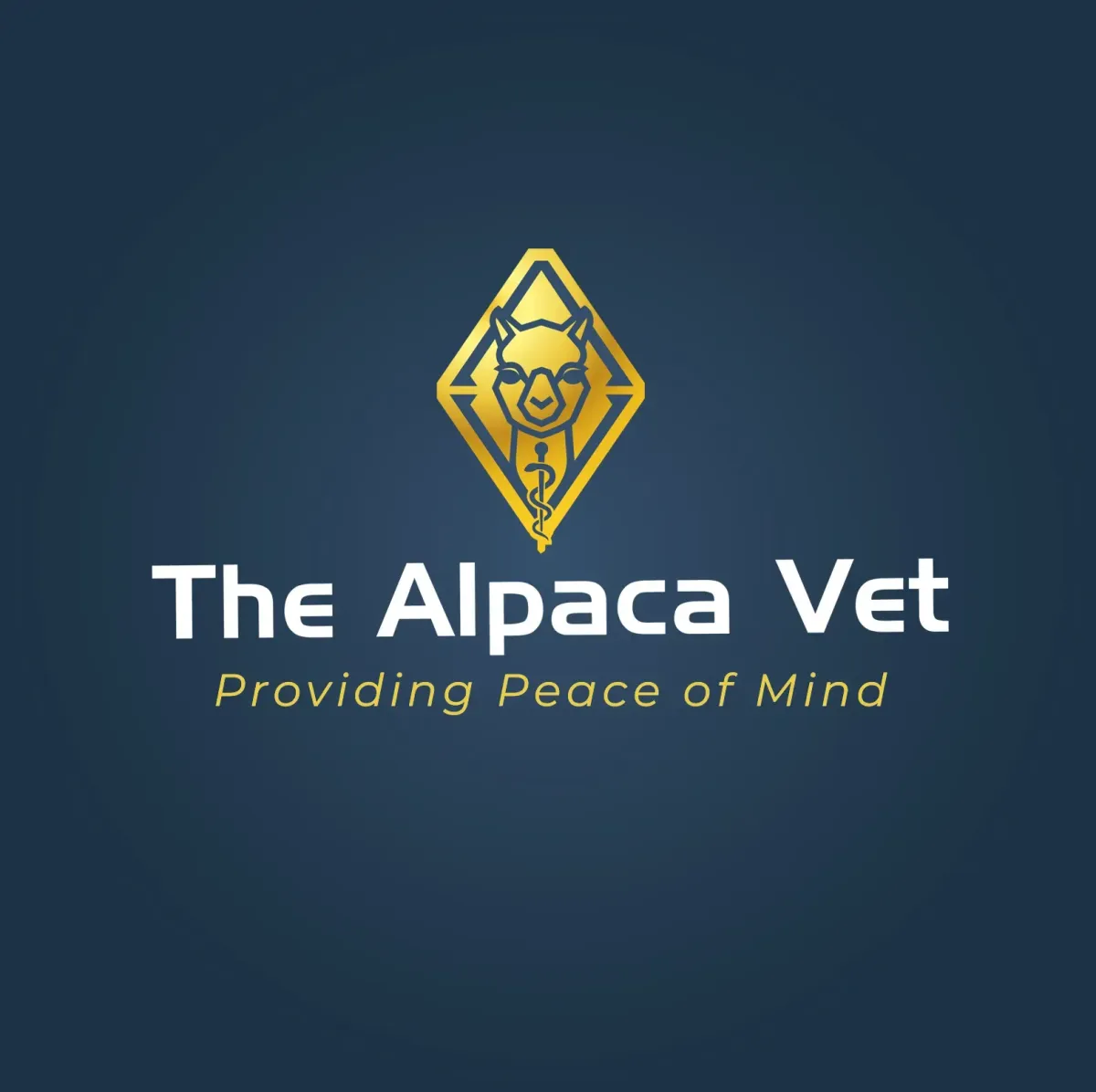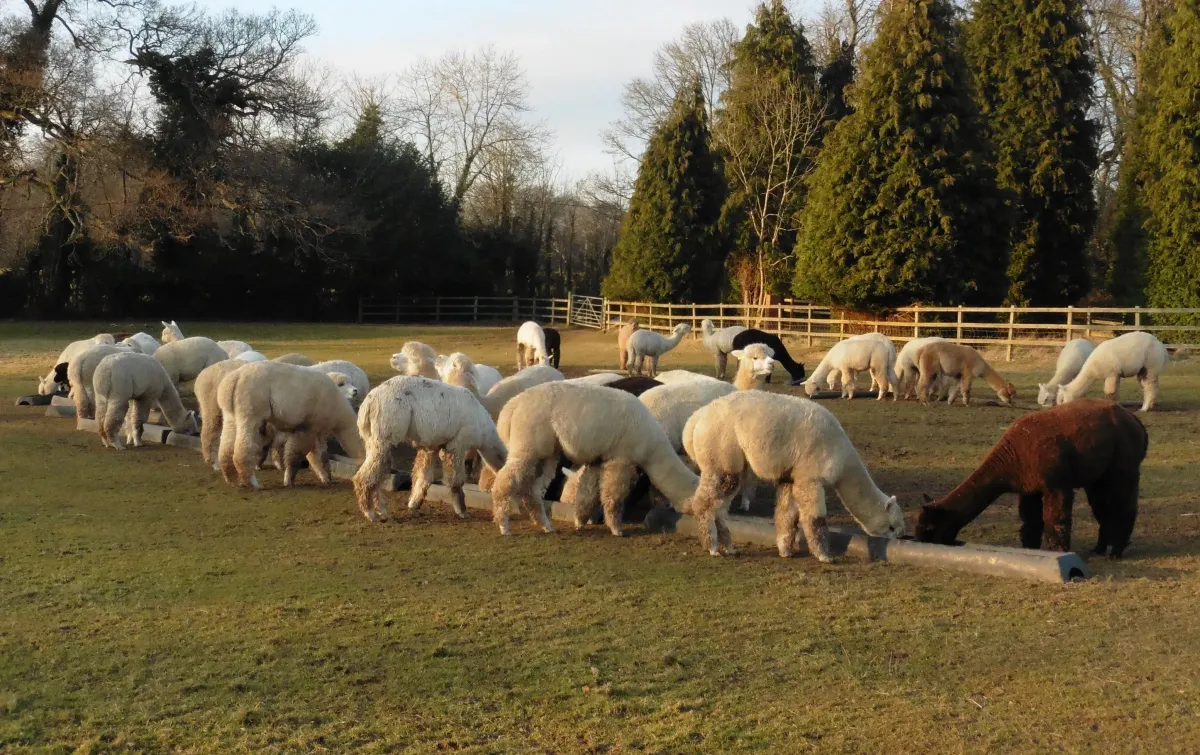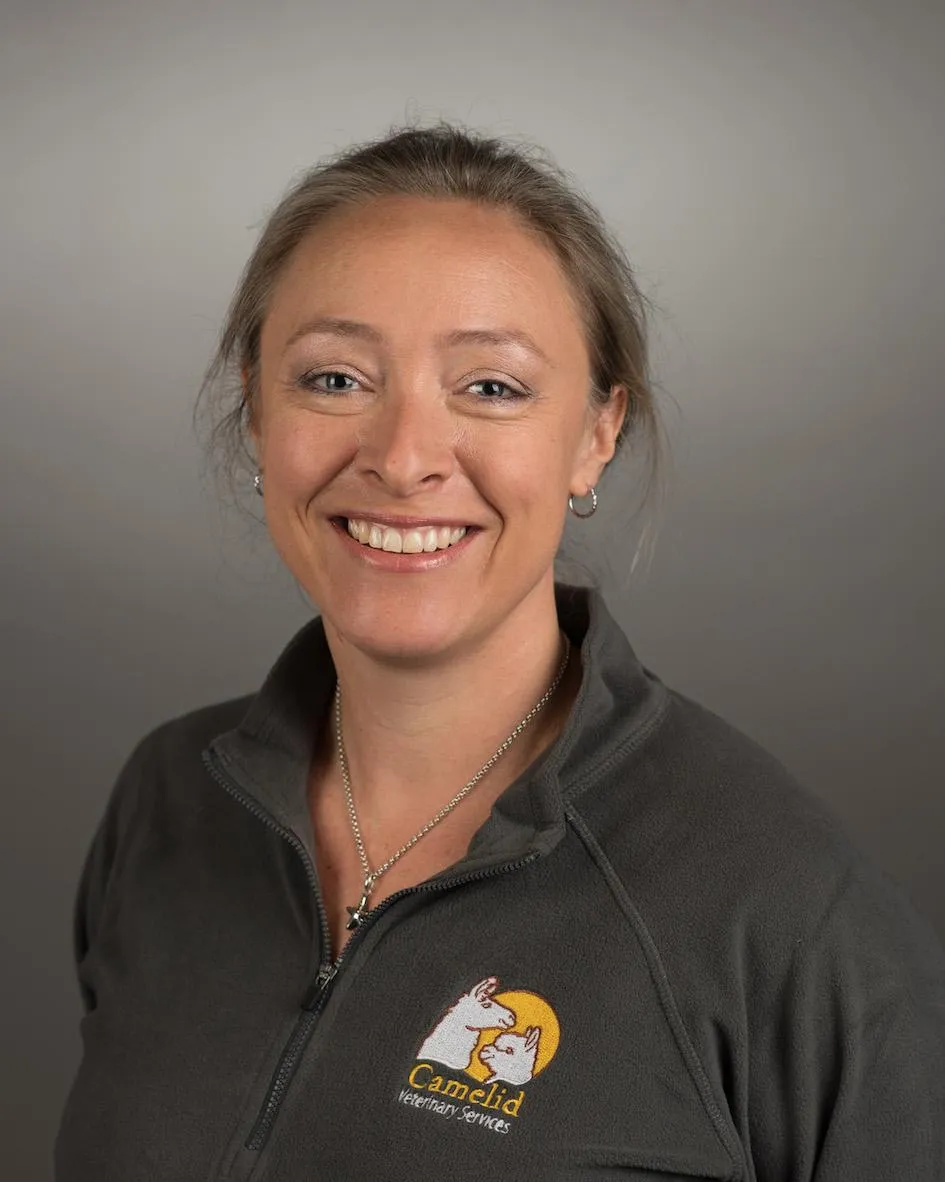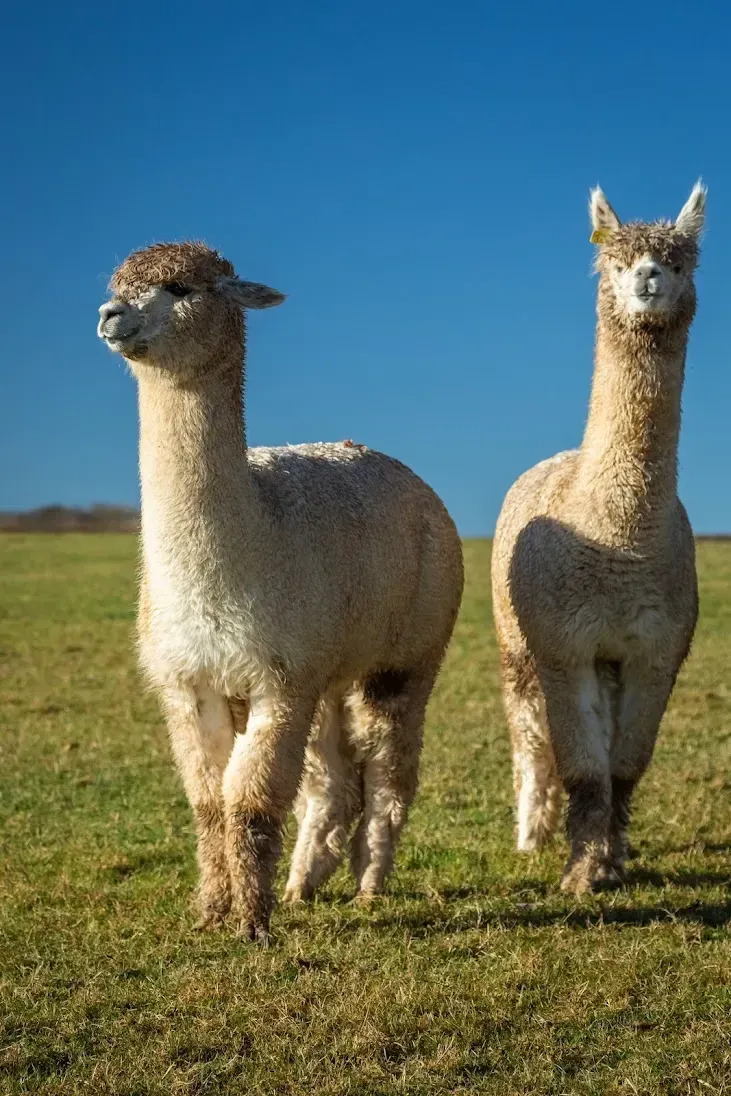
ADVANCED CAMELID NUTRITION MASTERCLASS
With Bob Van Saun


Full Price: £697 +VAT
Hosted by Claire E Whitehead,
The Alpaca Vet
(Equivalent to approx. 797 Euros
+ tax where appropriate)

On-Demand access to the most comprehensive Camelid Nutrition Masterclass ever offered—watch anytime, anywhere!
PLUS LIVE Workshop Sessions to help you make the most of the training!
If you want to pay in USD please follow this link.
BENEFITS TO YOU!
KEY BENEFIT: Transform your nutritional management for your alpaca or llama herd
A healthy herd is a happy herd: a happy herd delivers a happy owner!
Better herd health improves immunity and disease resistance = less disease
Less money spent on health-related problems
More time to enjoy your herd due to less time fixing problems
For vets, understand how to help your clients develop optimal nutrition programmes that are tailored to suit their needs.

WHAT YOU WILL LEARN:
A greater understanding of how the feed you provide your animals gets used and metabolised
The unique adaptations of camelids relating to nutrition
Why you should feed some feedstuffs and not others
Demystify the forage analysis and feed bag labels
All about supplements – what, when and how to use them to complement forage feeding
Learn how to develop a practical feeding programme and when and how to tweak it to suit differing requirements
Including how to get weight on, AND how to get weight OFF!
Use of simple tools to help you balance the ration
Discover how optimal nutrition affects reproductive performance
How to properly feed to support breeding and pregnancy
Recent work addressing body condition, phosphorus and protein effects on reproduction will be presented
Develop an appreciation for the impact of nutrition on the growth and health of crias during 4 different feeding stages – during pregnancy nutrition, colostrum feeding, C1 development and weaning, and post-weaning growth.
Understand cria growth and what expected rate of gain and growth curves tell you about your feeding programme. Learn how to use growth curves in evaluating cria growth and development and what dietary factors might impact quality of growth.
WHAT YOU GET:
15 hours of on demand training with the world’s foremost expert on camelid nutrition.
Live group workshop sessions with both Bob Van Saun and Claire Whitehead to get you started and help get you set up for assessing your forage quality. Then we'll come back 5 weeks later to go over your results as a group. We understand that sometimes nutrition can be challenging, and we want to ensure that you understand what your results mean. These workshops are also an opportunity to get your questions answered about the course content. Remember that there is no such thing as a stupid question, only regret afterwards for not asking!
Tuesday 14th October - 2pm UK time (9am EST, 6am PST), expected duration 1.5-2 hours
\
Tuesday 18th November - 2pm UK time (9am EST, 6am PST), expected duration approx 2-3 hours
\
Course notes available as downloads.
A continuing education certificate will be provided at the end of the course.
BONUS #1! Ration formulation tool - this tool is genius! AND you will be shown how to make the most of it during an entire session on the Masterclass. Put in the details about your animals and your feed and it will calculate the nutrients supplied by your ration and where you have imbalances or deficiencies that need correcting.
BONUS #2! LIFETIME ACCESS to the training portal giving access to the on-demand training, course downloads and our online community.

I know this course is going to massively expand your knowledge on camelid nutrition and transform your nutritional management!
Don't miss this opportunity!
- Claire E Whitehead BVM&S MS DACVIM FHEA MRCVS
Camelid Veterinary Services Ltd
COURSE OUTLINE:
Module 1
Understanding the beast
Camelids are well-adapted to a unique and harsh environment in South America. They are very capable of adapting to many other environments, but understanding their nutritional needs is critical to a healthy feeding program. Learn how camelids are different and similar to cows, sheep, and goats and how this will impact their feeding.
Module 2
Reading your forage analysis
Forage feeding is the foundation of the camelid feeding program; however, not all forages fit the specific needs of the animal’s situation. Learn how to read and interpret the numbers from a feed analysis report and use this to make decisions on your forage feeding program.
Module 3
Camelid feed intake relative to requirements
Feed intake is the foundation of a nutritional program yet is often the least understood component of a diet. Camelids are noted to have low intake, but not always and this impacts nutrient balance. Learn what determines how much camelids will consume of a diet.
Module 4
Introduction to dietary formulation
In this session, Dr Van Saun will demonstrate how to use the Ration Formulation Tool and will help you learn how to apply your knowledge and use your own data to successfully build your own rations.
Module 5
Using dietary supplements
There are many commercial products available for feeding camelids in addition to forage. What kind of products would be appropriate for your feeding program? How to make decisions on how much to feed? Learn how to critically evaluate camelid supplement products and their use in a complementing a forage program.
Module 6
Practical feeding programs
How do we use this information to develop a balanced nutritional program? What should we do to either reduce body weight or help gain weight? Learn how to adjust your feeding program accordingly. Application of the Pearson Square will be demonstrated as a simple dietary formulation process.
Module 7
Feeding for optimal reproduction
Nutrition is a critical factor influencing successful camelid reproduction. Recent work addressing body condition, phosphorus, and protein effects on reproduction will be described. Learn how to properly feed the camelid to support their reproductive activities of breeding and pregnancy.
Module 8
Vitamin D nutrition of camelids
Camelids are unique in how vitamin D works in their bodies. Moving camelids from their native environment has resulted in vitamin D issues impairing cria growth and health. Vitamin D deficiency and toxicosis will be addressed. Learn how to ensure sufficient, but not too much, vitamin D is provided in your camelid diets.
Module 9
Feeding the neonatal cria
To ensure a healthy and vigorous cria one needs to address four different feeding stages, namely pregnancy nutrition, colostrum feeding, Compartment-1 development and weaning, and postweaning growth. Learn how each of these stages can impact the health and growth of your crias.
Module 10
Monitoring camelid growth
How should a cria grow? What is expected rate of gain and can growth curves tell me something about our feeding program? Learn how to use growth curves in evaluating cria growth and development and what dietary factors might impact quality of growth.
Course Investment:
Full Price: £697 + VAT where applicable (per person)
Registration is open to ALL.
Payment by instalment is also available. If you are a UK resident, just select this option at checkout: if outside the UK, email Rick at [email protected].
For delegates outside of the UK, please provide a business name and VAT number (or valid tax ID) at checkout to receive the course VAT-free. For US-based business customers, please click here to email [email protected]: you will need to provide us with your business name and evidence of your business in order to receive the course free of UK sales tax. You will then be sent a separate payment link.
About the Speaker
Robert Van Saun received his DVM degree from Michigan State University in 1982. He practiced in northern New York in a predominately dairy practice prior to returning to Michigan State to complete a MS degree in nutrition (1988) and a residency in theriogenology (reproduction). Dr. Van Saun completed a PhD program in ruminant nutrition from Cornell University (1993). He is board certified diplomate of the American College of Theriogenologists and American College of Veterinary Internal Medicine (Nutrition). Dr. Van Saun was on faculty at the College of Veterinary Medicine Oregon State University from (1992-2000) and worked with the dairy and small ruminant (sheep, goats, camelids) industries in the Pacific Northwest. Dr. Van Saun has completed research projects dealing with vitamin D, hepatic lipidosis, and trace mineral nutrition in llamas and alpacas. Dr. Van Saun joined the Penn State faculty in 2000 as an extension veterinarian and is currently a Professor of Veterinary and Biomedical Sciences. He authored the nutrition chapter for the Complete Alpaca book and South American Camelids Medicine and Surgery. His nutritional work with camelids was incorporated into the NRC 2007 publication on nutrient requirements of small ruminants.
FEEDBACK FROM PEOPLE WHO HAVE PREVIOUSLY TAKEN THIS COURSE
“The course was inspirational. It has lifted the veil on the phrase 'modified ruminant', it has explained how to better look after our alpacas. It had so much knowledge - I will be rewatching it for a long time to come, thank you very much Claire. ”
- FIonnuala Gryson, Ireland
“This masterclass on camelid nutrition was fantastic. It helped me understand my alpaca's needs in all stages of life, and made me re-evaluate our current feeding program. The digestive anatomy section was particularly enlightening. All topics were clearly explained by a very knowledgeable and competent speaker. Highly recommended - more please! ”
- Zoe Wakerly, Cheshire, UK
“The more I learn about nutrition the more important I find it is. Everything in the online course got me thinking, questioning my own herd management and reassuring me where I already have good practices in place. I am looking forward to re-visiting the recorded sessions, so that I can learn even more.”
- Kate Brookes, Mullacott Alpacas, Devon, UK
“Initial thought was “I can’t afford to spend two days with this course when I have so much to do!” Absolute nonsense, it was so worth the time. In fact, I’ll be investing more time to figure out what I missed. My herd will appreciate this in the long run. ”
- Eric Lohmann, Rocky Top Acres, Minnesota, USA
“I would highly recommend this course for the information I have learned which will help me to improve the nutrition of my alpacas. The section on Vitamin D and the different minerals was excellent as I know now what to administer. With regards to forage, this was very well covered and will be of great benefit.”
- Jane Kidd, Millstream Alpacas, Northern Ireland, UK
“As a participant from Australia I was unsure if the course would fully meet the needs of a participant from overseas. Claire had assured me that the content would be suitable for all regions of the world and true to her word the information provided gave participants the skills to take the nutritional requirements for their alpaca and apply it to the available nutrients in their regions. What an amazing lecturer Bob Van Saun is, bringing the complexities of nutrition down to layman's terms along with providing the tools to simplify the calculations needed for alpaca diets at different stages of their life cycle from maintenance feeding through to production feeding.
My alpaca and my bank balance will be beneficiaries of the knowledge I have gleaned from undertaking this course. "
- Carolyn Cumper, Riatta Alpaca, Australia
HOW DO I REGISTER?
Follow the link below! If you have any questions, please email [email protected]
You’ve Got Questions. We’ve Got Answers.
How many hours of continuing education (CE) will this count for?
This course will account for 15 hours of on-demand continuing education and a further approximately 4 hours of live workshop time.
How do I get my CE certificate?
This will be emailed to you in the week following the course as a PDF document.
Can I watch what I miss on-demand?
Yes of course. Links to the workshop recordings will be provided the day after each day’s event, once they become available. These will then be uploaded to The Alpaca Vet’s learning portal where you will have access to all the presentations, handouts and workshop sessions.
Is the CE interactive?
Yes, during the workshop sessions. You can ask questions during the workshops regarding your assignment and any other questions you might have. Your assignment will be to do forage analysis to help you apply your knowledge and feed your animals appropriately.
Is this course open to veterinarians as well as owners?
Absolutely! Veterinarians are most welcome to join this course and will not find it too basic at all. The course contains tonnes of detail and if you’re like me, you didn’t get taught too much about nutrition at vet school and really need this! Dr Van Saun is a phenomenal teacher and used to teaching at university level.
I’m worried that I won’t understand the course material. What level is it?
Dr Van Saun will explain all terminology to you and work through starting with the basics. If this is your first exposure to nutrition, you might find it challenging, but with the access to the recordings and Dr Van Saun’s comprehensive notes, you will be able to keep reviewing the content until you feel confident.
Is this course open to people from anywhere in the world?
Absolutely! You can join this course from anywhere in the world as it is hosted online. Save all those travel and hotel costs for your next holiday!
What language is the course conducted in?
English.
I’m a student. Can I get a discount?
Yes! Please email [email protected] with evidence of your current student status and you can get this course for £250 (+VAT if applicable, which makes it £300 total).
Can I pay in instalments?
Yes. If you prefer to pay by instalments and you are a UK resident, please select the option for Klarna at checkout. If you are located outside the UK, please email Rick at [email protected]. This will be 3 equal payments, paid monthly.
Do you need more convincing?
Kate Brookes of Mullacott Alpacas in Devon (UK) talk about her experience attending the Nutrition Masterclass in 2023.
Copyright 2025 Claire E Whitehead. All Rights Reserved. Privacy Policy